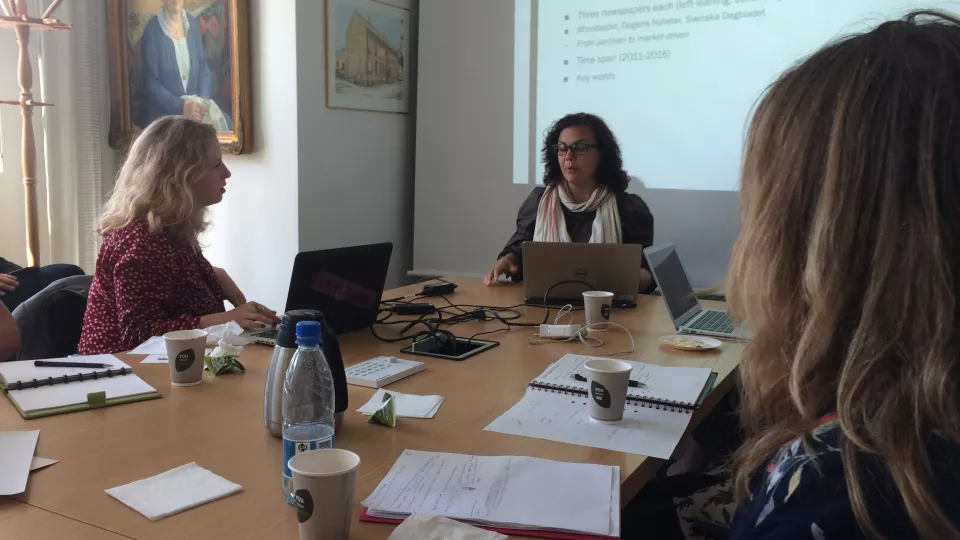The participants formed an interdisciplinary group of scholars who are currently undertaking research projects that focus on refugees in Northern European countries, and members of civil society organizations that are working with refugees. With background in sociology, anthropology, political science, history, law, critical criminology, social work and cultural geography, the aim was to share experiences and gain different perspectives.
There were five panel sessions during the day and Admir Skodo was part of panel 1: "Studying State Actors and the Construction of the Refugee Crisis" where he presented his paper: "The public philosophy of the Swedish state in its response to the 2015 “refugee crisis”.
Abstract: In 2017, the Swedish state published an official public report entitled Att ta emot människor på flykt: Sverige hösten 2015. The report describes the series of events that constitute the "refugee crisis" of 2015 and how state agencies, municipalities, and civil society managed these events. The authors of the report were dumbfounded by the government directive not to look at the underlying causes of the crisis, but rather focus on describing how the events unfolded in order to draw out possible lessons for the purpose of crisis management. This paper spells out the "public philosophy" underlying this report, its political implications, and ways in which other actors in the Swedish migration field contest it. It argues that the public philosophy informing the state’s response to the crisis can be read in quasi-idealist terms, which seek to consistently subsume the universal human right to asylum under the particular right of state sovereignty. By unearthing this public philosophy we are better able to understand the underlying principles of the state’s response to the crisis and the extent of state power in practicing the right to asylum.
